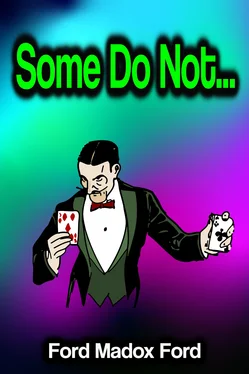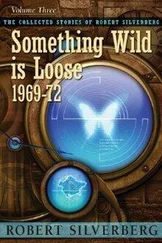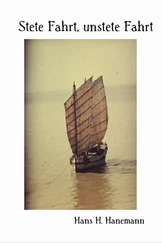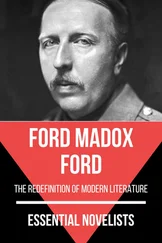'You would not expect much intelligence from the police of Sussex,' Tietjens said. 'But you would be wrong. P.C. Finn is clever enough to recognise the young lady who for several years past has managed the constabulary's wives' and children's annual tea and sports. He says Miss Wannop holds the quarter-mile, half-mile, high jump, long jump and putting the weight records for East Sussex. That explains how she went over that dyke in such tidy style...And precious glad the good, simple man was when I told him he was to leave the girl alone. He didn't know, he said, how he'd ever a had the face to serve the warrant on Miss Wannop. The other girl--the one that squeaked--is a stranger, a Londoner probably.'
Macmaster said:
' You told the policeman...'
'I gave him,' Tietjens said, 'the Rt. Hon. Stephen Fenick Waterhouse's compliments, and he'd be much obliged if the P.C. would hand in a 'No Can Do' report in the matter of those ladies every morning to his inspector. I gave him also a brand new fi' pun note--from the Cabinet Minister--and a couple of quid and the price of a new pair of trousers from myself. So he's the happiest constable in Sussex. A very decent fellow; he told me how to know a dog otter's spoor from a gravid bitch's...But that wouldn't interest you.'
He began again:
'Don't look so inexpressibly foolish. I told you I'd been dining with that swine...No, I oughtn't to call him a swine after eating his dinner. Besides, he's a very decent fellow...
'You didn't tell me you'd been dining with Mr Waterhouse,' Macmaster said. 'I hope you remembered that, as he's amongst other things the President of the Funded Debt Commission he's the power of life and death over the department and us.'
'You didn't think,' Tietjens answered, 'that you are the only one to dine with the great ones of the earth! I wanted to talk to that fellow...about those figures their cursed crowd make me fake. I meant to give him a bit of my mind.'
'You didn't !' Macmaster said with an expression of panic. 'Besides, they didn't ask you to fake the calculation. They only asked you to work it out on the basis of given figures.'
'Anyhow,' Tietjens said, 'I gave him a bit of my mind. I told him that, at threepence, it must run the country--and certainly himself as a politician!--to absolute ruin.'
Macmaster uttered a deep 'Good Lord!' and then: 'But won't you ever remember you're a Government servant? He could...'
'Mr Waterhouse,' Tietjens said, 'asked me if I wouldn't consent to be transferred to his secretary's department. And when I said: "Go to hell!" he walked round the streets with me for two hours arguing...I was working out the chances on a 4/½d. basis for him when you interrupted me. I've promised to let him have the figures when he goes up by the 1.30 on Monday.'
Macmaster said:
'You haven't...But by Jove you're the only man in England that could do it.'
'That was what Mr Waterhouse said,' Tietjens commented. 'He said old Ingleby had told him so.'
'I do hope,' Macmaster said, 'that you answered him politely!'
'I told him,' Tietjens answered, 'that there were a dozen men who could do it as well as I, and I mentioned your name in particular.'
'But I couldn't ,' Macmaster answered. 'Of course I could convert a 3 d . rate into 4½ d . But these are the actuarial variations; they're infinite. I couldn't touch them.'
Tietjens said negligently: 'I don't want my name mixed up in the unspeakable affair. When I give him the papers on Monday I shall tell him you did most of the work.'
Again Macmaster groaned.
Nor was this distress mere altruism. Immensely ambitious for his brilliant friend, Macmaster's ambition was one ingredient of his strong desire for security. At Cambridge he had been perfectly content with a moderate, quite respectable place on the list of mathematical postulants. He knew that that made him safe, and he had still more satisfaction in the thought that it would warrant him in never being brilliant in after life. But when Tietjens, two years after, had come out as a mere Second Wrangler, Macmaster had been bitterly and loudly disappointed. He knew perfectly well that Tietjens simply hadn't taken trouble; and, ten chances to one, it was on purpose that Tietjens hadn't taken trouble. For the matter of that, for Tietjens it wouldn't have been trouble.
And, indeed, to Macmaster's upbraidings, which Macmaster hadn't spared him, Tietjens had answered that he hadn't been able to think of going through the rest of his life with a beastly placard like Senior Wrangler hung round his neck.
But Macmaster had early made up his mind that life for him would be safest if he could go about, not very much observed but still an authority, in the midst of a body of men all labelled. He wanted to walk down Pall Mall on the arm, precisely, of a largely lettered Senior Wrangler; to return eastward on the arm of the youngest Lord Chancellor England had ever seen; to stroll down Whitehall in familiar converse with a world-famous novelist, saluting on the way a majority of My Lords Commissioners of the Treasury. And, after tea, for an hour at the club all these, in a little group, should treat him with the courtesy of men who respected him for his soundness. Then he would be safe.
And he had no doubt that Tietjens was the most brilliant man in England of that day, so that nothing caused him more anguish than the thought that Tietjens might not make a brilliant and rapid career towards some illustrious position in the public services. He would very willingly--he desired, indeed, nothing better--have seen Tietjens pass over his own head! It did not seem to him a condemnation of the public services that this appeared to be unlikely.
Yet Macmaster was still not without hope. He was quite aware that there are other techniques of careers than that which he had prescribed for himself. He could not imagine himself, even in the most deferential way, correcting a superior; yet he could see that, though Tietjens treated almost every hierarch as if he were a born fool, no one very much resented it. Of course Tietjens was a Tietjens of Groby; but was that going to be enough to live on for ever? Times were changing, and Macmaster imagined this to be a democratic age.
But Tietjens went on, with both hands as it were, throwing away opportunity and committing outrage...
That day Macmaster could only consider to be one of disaster. He got up from his chair and filled himself another drink; he felt himself to be distressed and to need it. Slouching among his cretonnes, Tietjens was gazing in front of him. He said:
'Here!' without looking at Macmaster, and held out his long glass. Into it Macmaster poured whisky with a hesitating hand. Tietjens said: 'Go on!'
Macmaster said:
'It's late; we're breakfasting at the Duchemins' at ten.' Tietjens answered:
'Don't worry, sonny. We'll be there for your pretty lady.' He added: 'Wait another quarter of an hour. I want to talk to you.'
Macmaster sat down again and deliberately began to review the day. It had begun with disaster, and in disaster it had continued.
And, with something like a bitter irony, Macmaster remembered and brought up now for digestion the parting words of General Campion to himself. The General had limped with him to the hall door up at Mountby and, standing patting him on the shoulder, tall, slightly bent and very friendly, had said:
'Look here, Christopher Tietjens is a splendid fellow. But he needs a good woman to look after him. Get him back to Sylvia as quick as you can. Had a little tiff, haven't they? Nothing serious? Chrissie hasn't been running after the skirts? No? I daresay a little. No? Well then...'
Macmaster had stood like a gate-post, so appalled. He had stuttered:
'No! No!'
'We've known them both so long,' the General went on. 'Lady Claudine in particular. And, believe me, Sylvia is a splendid girl. Straight as a die; the soul of loyalty to her friends. And fearless--she'd face the devil in his rage. You should have seen her out with the Belvoir! Of course you know her...Well then!'
Читать дальше












